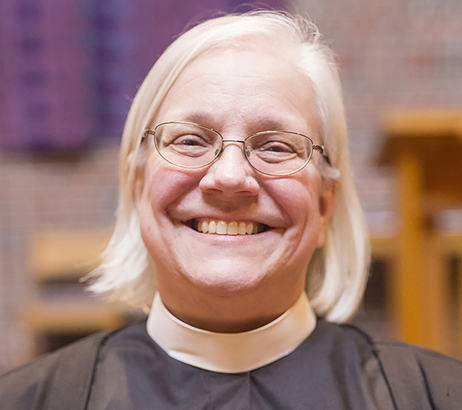‘According to the grace of God given to me, like a skilled master builder I laid a foundation, and someone else is building on it. Each builder must choose with care how to build on it.’ (1 Corinthians 3:10)
Some people think that history is simply what happened in the past. It’s worth attending to the fact that the word “story” is contained within the word history. History is not only about what happened in the past but about how we record and talk about the past, and how we do that in a way that influences our present and future.
Last week Professor Joy Schroeder, Hamma librarian Elli Cucksey, and I participated in the “Big Questions” retreat sponsored by Capital University’s Center for Faith and Learning. We gathered with other Capital colleagues at Deer Creek State Park, about 40 minutes drive from Columbus, in a lodge overlooking a beautiful lake.
The “Big Questions” retreat has a long history at Capital as an opportunity for faculty and staff to reflect on their own vocations and on the vocation of higher education in the Lutheran tradition. This year’s retreat had a special focus. Capital has received a grant from the Network for Vocation in Undergraduate Education (NetVUE) as part of NetVUE’s “Reframing the Institutional Saga” initiative. This initiative provides funds “to colleges and universities that seek to re-examine and reframe their institutional commitments in ways that balance their history, identity, and heritage with attention to their present circumstances.”
Higher education is in a time of tremendous change. So is the church. We cannot continue to live in the past. The question is how we will lean into change in ways that are faithful both to our heritage and our mission.
Personally, I tell the story of Lutheran higher education in a way that is very similar to how I teach church history. Both stories are stories of God’s faithfulness – over time, through change, and despite conflict. Trinity has experienced its own changes over its almost 200-year history. While our mission remains constant, we are telling the seminary’s story in new ways since becoming Trinity Lutheran Seminary at Capital University in 2018.
Now Trinity faculty and staff are helping others at Capital think about how to tell the story of the University in newways, in changing times. One aspect of this that we are exploring together is what it means to be a university founded by and still associated with Lutherans while also committed to robust interfaith collaboration. Like many of our congregations, the colleges and universities of the ELCA are striving to live into what we sing: that “all are welcome in this place.”
May the Spirit work signs of life and growth in your own ministry!
The Rev. Kathryn A. Kleinhans, Ph.D.
Dean



